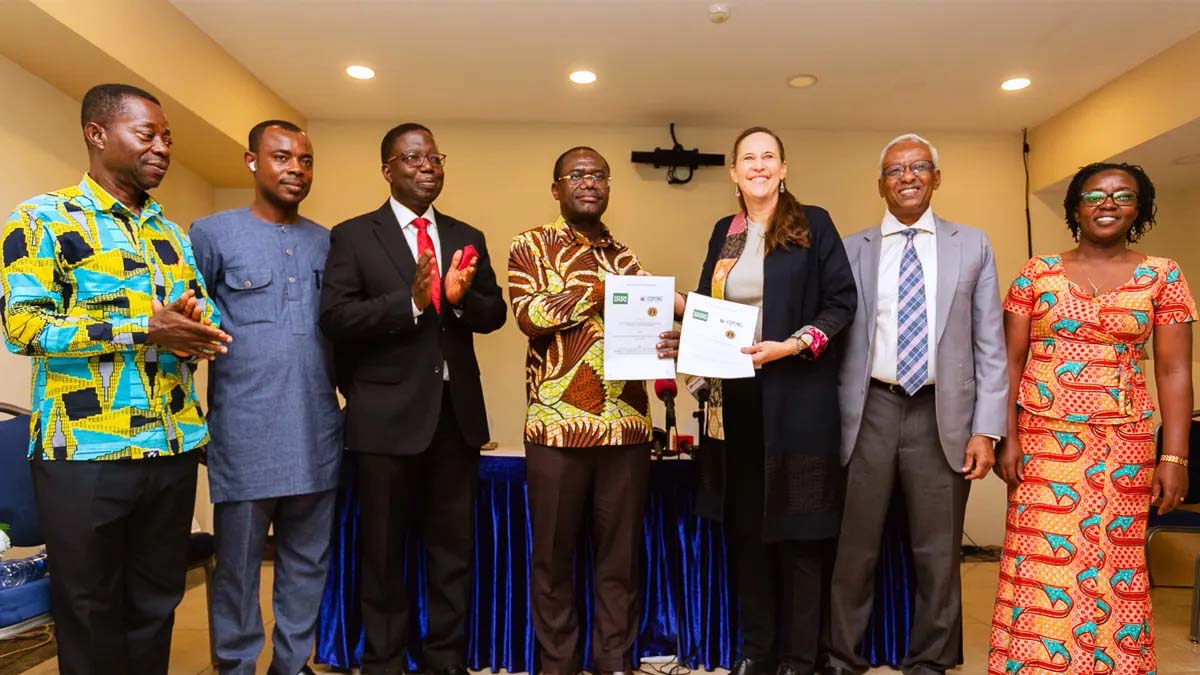
The Jospong Group has signed a Memorandum of Understanding (MoU) with the International Rice Research Institute (IRRI) to accelerate the development of Ghana's rice industry by leveraging IRRI's expertise.
The agreement aims to support the Council for Scientific and Industrial Research (CSIR) with knowledge sharing and capacity building for rice growers and researchers, tapping into the latest advancements and innovations in rice technologies.
Dr Joseph Siaw Agyepong, Chair and Founder of Jospong Group highlighted that this partnership builds upon the recent agreement with CSIR, forming a tripartite alliance that ensures Ghana's access to scientific advancements.
Dr Joanna Kane-Potaka, Deputy Director General at IRRI, emphasized the importance of the partnership in making nutritious, high-yielding, and climate-resilient rice varieties available in Ghana. She also stressed the adoption of sustainable and environmentally friendly production methods.
Prof. Paul Bosu, Director General of CSIR, expressed optimism that the project would address Ghana's reliance on rice imports. He underlined the collaborative nature of the Jospong Rice project, bringing together stakeholders to support a national agenda.
Dr Abdelbagi Ismail, IRRI-Africa Director, highlighted the potential for this agreement to serve as a model for other African countries, accelerating research and delivery of high-quality rice and developing effective value chains for food and nutrition security.
The partnership was facilitated by High Commissioner Florence Akonor, who visited IRRI's headquarters to seek technical advice and collaboration for the Ghana Rice Project, private industry, and other stakeholders.
The collaboration aims to enhance yields and livelihoods for farmers while ensuring sustainable production using the latest nutritious rice varieties.
Jospong Group plans to scale up Ghana's rice industry by investing in high-quality seeds, modern production technologies, and training for smallholder farmers. The goal is to replace the increasing quantities of imported rice.
Rice consumption in Ghana has nearly tripled in the past decade, with individuals consuming approximately 45 kilograms per year.
The country has an urgent need to produce rice locally to reduce the financial strain caused by rising imports and foreign exchange demand.
IRRI is dedicated to eradicating poverty and hunger in rice-dependent agri-food systems. Through partnerships and its work, IRRI aims to improve the well-being of rice farmers and consumers, promote environmental sustainability in the face of climate change, and empower women and youth in the rice industry.
In 2023, the Asian African Consortium, a subsidiary of Jospong Group, partnered with major players in the rice industry in Thailand and Ghana to develop an integrated rice farming project. This initiative aligns with the government's objective of boosting the economy through import substitution.
Ghana has spent over ¢6.8 billion (equivalent to $560 million) on rice imports, despite the potential for local production. The partnership between Jospong Group and IRRI aims to address this issue and foster self-sufficiency in rice production.
Source: The Ghanaian Standard
Caregories
Must Read
Connect
Stay With Us
news and upcoming events




